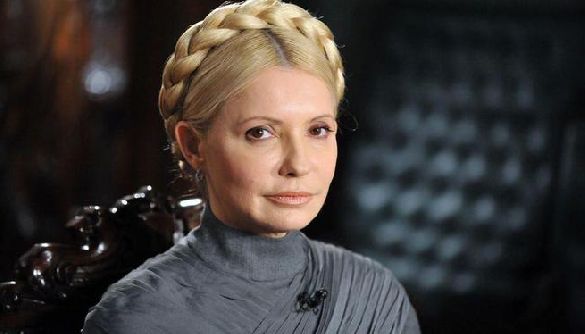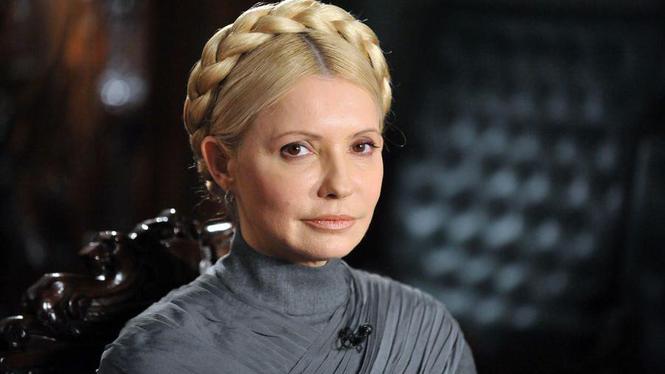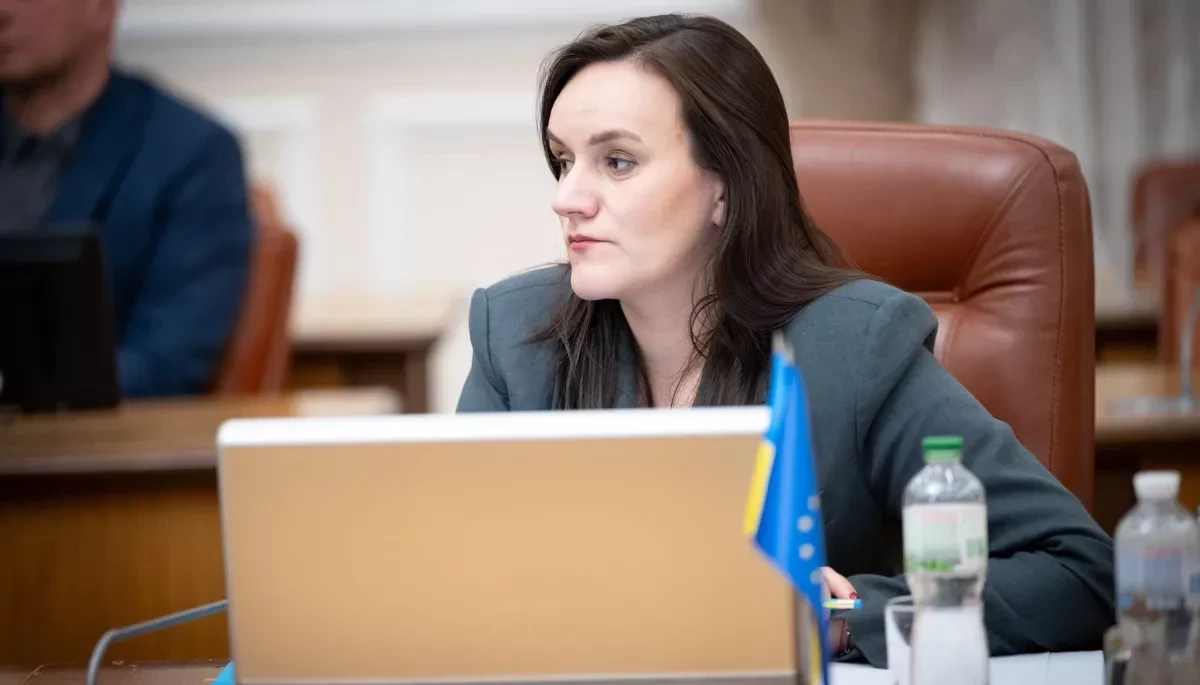
Has Yulia Tymoshenko integrated Donbas into her presidential campaign agenda?
Has Yulia Tymoshenko integrated Donbas into her presidential campaign agenda?


November – December 2017 here.
During January-February, 2018, monitoring of the government communication policy toward Donbas has detected such trends:
- President of Ukraine was more attentive listening to messages from US than to the voice of the people living in Donbas.
- Prime minister visited Mariupol but avoided speaking about problems that were of the interest for the local population.
- Ministries decreased their activities about Donbas topics to the lowest point since the beginning of monitoring (March 2017).
- Donetsk governor improved his communication with the people, while Luhansk governor behaved like his predecessors during Kuchma and Yanukovych presidencies.
- Pro-presidential “Solidarnist” party gave in information struggle over president’s draft law on de-occupation to the “Opposition Bloc”, while Yulia Tymoshenko caught her chance to promote her own plan of the conflict resolution, including ideas which, according to the polls, had the biggest support among Ukrainians.
President arranged priorities for the 2018
The meeting with the US Special representative on Ukraine Kurt Volker became important milestone in president’s media activity during January and February. Before January 23, president Poroshenko vaguely spoke about “presidential strategy of Donbas liberation” and “road map for reintegration of the Ukrainian lands by peaceful, political and diplomatic means”. He did not tell details about his plans even during the meeting with the Ukrainian permanent negotiators in the Trilateral contact group (Minsk format).
After the January 23rd, president started to push the idea of sending armed peacekeeping mission with mandate covering all occupied territories of Donbas. Poroshenko enforced his message making three points:
- Emphasizing that “Russian threat” was imminent not only for Ukraine but also for Europe (first of all for the foreign audience);
- Underscoring decisive role of the Ukrainian army and national unity to counter Russian aggression (both for the foreign and domestic audiences);
- Reminding about Russian responsibility for taking hostages and prisoners of war as evidence of the Russian aggressive interference in the internal affairs of Ukraine .
Thus, president Poroshenko returned to rhetoric he used in September-October after the pause in November-December dictated by necessity to react to heated political debates. Most of president’s messages (13 pieces) about Donbas were released in the context of his foreign policy communications. Eleven times president Poroshenko mentioned his idea of sending peacekeepers to Donbas. At the same time president underlined importance of the strong Armed Forces as a tool to respond to the Russian aggression (12 messages).
Thus its seems that president Poroshenko decided to balance the idea of inviting international peacekeeping forces to Donbas with the demonstratively strong and defiant readiness to use force to repeal Russian aggression.
In our opinion, president tried to meet expectations of the two biggest groups of the voters: whose who believe that the UN peacekeeping force is the only mean to achieve peace, and whose who support military actions and advance against Russia in order to liberate occupied territories. However, opinion polls showed that majority of Ukrainians did not like idea of giving president more power over the army and other security forces. Thus we shall look how president Poroshenko is going to respond to this challenge.
Prime Minister: has ice been broken?
On January 12th prime minister Volodymyr Hroisman visited Mariupol and a checkpoint “Hnutove”. In his Facebook posts prime minister pointed out his priorities: supporting domestic producers (Hroisman spent half of his time touring around one of the city’s biggest steel plants “Azovstal”, which belongs to Rinat Akhmetov), caring about common people (PM talked to retirees, inspected repair of the regional hospital of intensive care, looked at the work of the checkpoint), demonstrating transparency (Hroisman met with the local press) and willingness to defend the country (PM promised to allocate 162 billion UAH for the Armed forces in 2018).
At the same time prime minister did not mention the “civil blockade” of Donbas that started in January 2017 and, according to him, should have caused “energy crisis”. Moreover, thanks to “Radio Liberty” reporters we have got exclusive information that Hroisman avoided discussing highly important and controversial topics of delayed pension payments to the IDPs and retirees from the occupied territories and refusal of the Pension Fund to execute court orders to pay pensions.
Then, in February prime minister used two occasions to speak about Donbas. In our opinion, Mr.Hroisman was more preoccupied with his image than his duties.
On February 4, prime minister tweeted: “Defence of the Donetsk airport was a special moment in the modern history of Ukraine. Thus high box-office of the movie “Cyborgs” (cyborgs was a popular name de guerre given by the Ukrainians and separatists to the defenders of the Donetsk airport for their endurance and gallantry) is not just a commercial success. It is our gratitude to the heroes who paid the highest price defending the Motherland!”.
Spectacularly, Mr.Hroisman again decided to avoid sharing his personal views about Donetsk airport defence (whether it was defeat or victory). However, his attempt to interpret commercial success of the movie as an example of patriotism and tribute to the fallen soldiers seems to be superficial and dissembling. It was superficial because there are many other good examples of patriotism and dedication of the common people to the cause of fighting aggression, which have been ignored by the government. It was dissembling since it is appeared hard for the prime minister to find anything which could be presented as his own contribution to this cause.
In our opinion, Mr.Hroisman has been making such mistakes because he used to avoid speaking publicly about Donbas issues. It is well known that only permanent practice of communicating with the people about their problems can bring knowledge about what and when should be said.
However, prime minister demonstrated ability to make strong statements when it comes to protecting his own interests. On February 19th he posted: “What a wonderful central school has been opened in Donbas after renovation…We shall see more and more such schools in Donbas. Investing for the future!”
It should be said that it was an example of direct self-promotion (message was followed by #HroismanGovernment). To do that Horisman used original news from the friendly news site (censor.net.ua, believed to be leaning toward party Peolple’s Front), which cited Facebook post of the Donetsk governor Pavlo Zhebrivskyi. However, Zhebrivskyi made a different point: “Building network of the modern central schools…is, according to president of Ukraine Petro Poroshenko, an investment in our future”. Thus prime minister omitted mentioning of his former patron and tried to portray building of schools as his personal achievement.
On the other hand, Hroisman said nothing about fulfillment of his own promise to take care of families of the captured soldiers and hostages. In December he clearly ordered to his subordinates to prepare recommendation by the end of January. Therefore, in the next monitoring we will look precisely at how prime minister is keeping his own word.
Cabinet of Ministers: too long Christmas holidays
In January and February ministries, which are important stakeholders of Donbas (Ministry on temporary occupied territories or MinTOT, Ministry of information policy or MIP, Ministry of internal affairs) significantly reduced their activity. For instance, MinTOT and MIP released 9 news together while in the previous months each of them produced no less than 10 news.
MinTOT remained the leading central executive agency communicating on Donbas issues. However, the these news included minister’s loyal endorsement of the president’s law on “de-occupation of Donbas”, reports about completed projects funded by the international donors, and meetings with the Ukrainian and foreign bureaucrats.
In January and February MIP prioritized communication on the Crimea issues, which overshadowed Donbas problems. There were only two news releases about “open school lesson in Kramatorsk” and “opening the commemoration tablet in Pokrovsk”.
Head of Donetsk CMA: excellent positive propaganda
Despite Christmas holidays Donetsk governor Pavlo Zhebrivskyi maintained proactive communication about regional issues. Traditionally, there were many releases about social issues: reconstruction of the civilian infrastructure (22 news), “Donetsk Kurkul (landlord)” project (4 news) and caring about orphans (3 news).
Zhebrivskyi made a special tributes to the victims of the Mariupol and Kramatorsk rocket bombardment by the Russian troops. He showed true commitment and understanding of the sentiments of the local people who just want to sees the end of conflict and support from the state. Moreover, Zhebrivskyi did not hesitate to identify what is the main threat to the peace: “Russkiy mir’ unveiled its true face: intimidation, death and destruction. Remember that day. Bow our heads in a minute of silence to commemorate perished elders and children, civilian and military”.
Generally speaking, in January and February Zhebrivskyi continued to use any relevant occasion to demonstrate his patriotic stance. For instance, while visiting new production line in Soledar he told that the conflict with Russia stimulated local entrepreneurs to introduce innovations and access other more lucrative markets, making more money and investing in the development of the local communities.
Reviewing his pet project “Donetsk kurkul”, Zhebrivskyi addressed directly to the people who remained in the occupied territories: “I’ve heard that people from the occupied territories are actively asking questions about this project. They couldn’t believe that the money are distributed to the people who present their business plans. It is really true, our fellow citizens, who have to stay under Russian occupation. Here we are building civil society and everybody is responsible for himself, everybody is allowed to make his fortune and enrich our motherland. Soon, I believe, when we force Russians out you will have a chance to see it.”
In our opinion, both above mentioned pieces are the good examples of the state propaganda. However, it is based on the facts that are not invented or twisted. Zhebrivskyi made use of real life situations to advance his agenda. It is the kind of positive propaganda which might win hearts and minds of the people in Donbas because it follows, not substitutes, real policy steps. However, not everything is fine in Donetsk oblast, according to independent reports. Thus we will continue to track developments in the volatile region.
Head of Luhansk CMA: bringing old stuff in the new year
As we noticed in the previous reports, Luhansk governor proved to be in favor of bureaucratic communications patterns. In January and February his favorite type of messages were: promises (Development of the agrarian sector requires strategic planning, Modernization of the healthcare is an urgent task “Yuriy Harbuz admitted that repair of the hospitals is a top priority”), positive reports (People’s trust is goal of government communication), obscure fiscal commitments (1.4 billion UAH will be given to oblast from the State program on reconstruction and peace building in the eastern Ukraine).
Among new developments we have to admit that Luhansk governor started to pay more attention to the inhabitants of the towns and villages situated near the frontline. However, it was also evident that Harbuz tried to use these occasion to demonstrate his achievements to the representatives of the central authorities (Yuriy Harbuz together with First deputy Chairwoman Iryna Herashchenko visited frontline villages in Popasna district).
First Deputy Chairwoman: loyalty is a top priority?
We continue to follow the story about “teenagers from Yasynuvata” told by Iryna Herashchenko last year. She recalled about them on January 4th: “I will put forward question about teenagers, who were detained in the Donetsk custodial facility, during the first meeting in Minsk. I strongly believe that all sides of the Minsk negotiations, including OSCE coordinators, should actively demand their release”.
However, Herashchenko did not keep her word. She skipped the day of negotiations making excuse for such behavior due to necessity to participate in the approval of the president’s draft law on Donbas de-occupation. Then, we found no mentioning about these hostages neither on 31st of January nor on 14th of February when the next Minsk meetings took place.
Ms. Herashchenko refused to release any further information about negotiations and fate of the hostages to general public, justifying such decision by president’s position on this issue and need to protect affected families: “President of Ukraine, commenting the issues of release of the prisoners and relevant negotiations, stressed that it’s not a right time to give names and dates of release. We must not fail this objective. Therefore, everybody who participates in talks and has details cannot do that. Unreliable information can destroy fragile hope, hurt relatives and families of the hostages, and, consequently, it is very perilous for the process of negotiations”.
On the other hand, it is hard to deny that for the people, who live in Donbas it is important to know that the government cares about them in the same manner as it cares about fate of the imprisoned soldiers or nationalists, sentenced in Russia. Thus we have to remind to Ms. Herashchenko that it is crucial to be consistent in steps after making strong statements regarding vital interests of the citizens. We will see whether she improves her communication with Donbas during the next months.
Solidarnist vs Opposition Bloc: who called the shots?
The political struggle around president’s draft law on “de-occupation” of Donbas made the day for the speakers from the pro-presidential party Solidarnist and their opponents from the Opposition Bloc. In January and February Solidarnist produced significantly more news (68) on Donbas issues than the Opposition Bloc (52). However, distribution of the messages among Solidarnist speakers was very uneven: Iryna Herashchenko released 28 news, Ivan Vinnyk – only 9, MPs from Donbas (Herasymov, Lubinets, Yefimov, Nedava) – 9, Bryhynets – 5. Inside Opposition Bloc top speakers were Yuriy Boyko – 14, Nataliya Korolevska – 10, Vadym Novinskii – 7, Serhiy Liovochkin – 6.
Then, it is interesting to look how competitors covered key political issues:
- Debating about president’s draft law on de-occcupation of Donbas: Solidarnist – 17 news, Opposition Bloc – 22;
- Attracting public attention to the problems of Donbas: Solidarnist – 10, Opposition Bloc – 8;
- Promoting peace plans or elements of the peace plan for Donbas: Solidarnist – 9 news, Opposition Bloc – 17.
Consequently, we may argue that Opposition Bloc gave in to Solidarnist in speaking about local problems of Donbas. At the same time Opposition Bloc appeared as a winner (in quantitative terms) in the debates about presidential legislation. Moreover, Opposition Bloc dominated media distributing its own interpretation of the idea of peacekeeping mission to Donbas by making it dependent on Ukraine’s willingness to implement Minsk agreements.
As a result it is very likely that people in Donbas would think that any future peacekeeping mission in Donbas is possible only if Ukraine decided to implement Minsk agreements.
Samopomich, Batkivshchyna and Radical party: beauty contest among populists
It was very interesting to follow how Radical party of Oleh Liashko made U-turns on Donbas issues in January and February. At first, Liashko condemned Samopomich and Opposition Bloc for resistance against approval of the president’s legislation: “The so-called ‘party of peace’ is an evident or clandestine network of Kremlin agents”. Then, in February he repeated some of allegations voiced by Samopomich leadership. Anyone can compare words of Oksana Syroid who blamed Poroshenko for “surrender”, and Oleh Liashko “Poroshenko admitted his defeat while signing Minsk agreement”
Meanwhile Yulia Tymoshenko tried to justify her decision to approve Poroshenko’s legislation on Donbas. Like Radical party her own party Batkivshchyna also demanded to exclude clause about the Minsk agreements from the text of the law. Then, Batkivshchyna speakers claimed that it had been their insistence which forced authorities to include provisions securing interests of the people who suffered from war.
In February Tymoshenko started to promote her alternative peace plan. The main ideas of the new plan were presented by Hryhoriy Nemyria while Tymoshenko said that only her initiative could bring peace to Donbas. It is worth mentioning that Tymoshenko’s central concept of “introducing the international civil administration in Donbas” supported by UN peacekeeping forces, Nemyria’s intensive demands (9 news) to renew pension payments to IDPs seemed to resemble the most popular ideas, circulating in the public opinion polls.
Thus it could be argued that Tymoshenko skillfully used opportunity, created by the debates about the president’s “law on de-occupation”, to seize attention of the Donbas public. Soon we will see whether it was an example of Tymoshenko’s political opportunism or a strategic decision to make Donbas issue one of the keystones of her presidential campaign.












